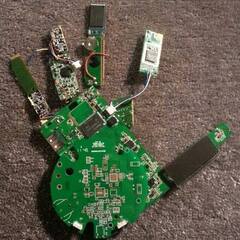ram Ram speed gaming preformance
5 minutes ago, crazygamerfreak said:I just upped the ram speed in bios. Task manager & bios report 3200 mhz, but benchmarks hit 2400mhz maximum. I don’t know if this is normal though.
I personally wouldn't trust Task Manager, I've seen it false report too many times, though I've also never heard of that particular RAM benchmark, so I don't know what its results are either. Check using something like CPU-Z instead, that's usually the most accurate (do note that CPU-Z reports the actual memory clock, which will be half the data rate because RAM is double data rate, so it's at 3200MT/s if CPU-Z reports 1600MHz).
Either way, technically the max bandwidth for RAM is calculated by data rate * 64 bits * # of channels (in this case 2), so 2666MT/s would result in a max theoretical bandwidth of 341,248Mb/s or 42,656MB/s and 3200MT/s would result in a max theoretical bandwidth of 409,600Mb/s or 51,200MB/s. In the real world you will always be a bit below those theoretical max figures, though neither of those numbers line up at all with what that program is outputting in the slightest, so I'd say it's probably just wrong. It doesn't help that it looks like you have a ton of stuff open in the background though, and if you didn't have everything open it might be more in line with those theoretical numbers (or not, I have never touched it before in my life).
the real way to do this is to run some sort of RAM benchmark before and after entering those settings, that way you don't have to go off theoretical numbers. The 4 I'd check using are Y-Cruncher, PYPrime, Aida64 Memory Benchmark, and Intel Memory Latency Checker (GUI version). I'd only really use one or two of those to check performance is actually going up, and Y-Cruncher/PYPrime are usually the most consistent in my experience. Aida64 Memory Benchmark is by far the most popular so you can find results to compare to the easiest, though it is the least consistent out of these. Intel MLCC is a more consistent and free version of Aida64, though it only works on Intel CPUs, is a little harder to setup initially and is not as popular, so comparing results is a bit harder (even though the numbers it puts out are labeled the same as Aida, the numbers themselves are not directly comparable between the two).
Also, did you enter the timings manually? If you're still running at the JEDEC 22-22-22-52 that could be contributing to the not as good performance. You should be able to get the CL16-18-18-38 to work on most RAM sticks if you want to get a bit more performance out of it.






.thumb.jpeg.9babd505c85c11addf31a285a02547cc.jpeg)









Create an account or sign in to comment
You need to be a member in order to leave a comment
Create an account
Sign up for a new account in our community. It's easy!
Register a new accountSign in
Already have an account? Sign in here.
Sign In Now